Musings Holiday Special #1: Winter Holidays, Part 1
Feelings of Warm Fuzziness in the Air with Winter Solstice, Hanukkah, Christmas, and More Holiday Cheer!
Hello, hello Fellow Musers! I hope everyone had a fantastic holiday month in December, and that your January 2025 is going well!
I admit, I’m not a big fan of the winter months, mainly due to having seasonal depression and not really liking the cold. But on December 1st, after November and one month after the sacred day-that-should-be-a-holiday-Halloween, I resign my resistance to the constant Christmas music and start to semi-enjoy it, although it still rarely gets played on my Spotify app.
However, I will say that I gained a new appreciation of the genre after hearing a very rock-genre version of a Christmas song on the radio one evening. On Dec. 25, if I’m with family or other people, I also reluctantly sit and watch/listen to the American version of football1 being played. This year of 2024, despite Beyoncé’s attempt to give them a boost with her Halftime Show, the Houston Texans lost the hoedown to the Baltimore Ravens (BR=31, HT=2). While I don’t claim to be a football fan, to see the Texans get beat that bad, well that shit ain’t pretty2, lemme tell y’all!
But y’all aren’t reading this for the handball ‘murican football game ass whooping. So let’s get to it!
Throughout the existence of our species, ranging from Neanderthals to Homo sapiens (aka us), humanity has been finding ways to keep smiling, not worry and be happy during the cold months in the Northern, Southern, and mountainous hemispheres-especially when most of us are hit in the feels by seasonal depression due to lack of au natural sunny Vitamin D3/D3-by throwing winter celebrations during certain days/weeks to keep moral and spirits up until we can feel the sun rays again in the spring, summer, and fall4. There is also the ancient myths of why we have winter. Some people might be surprised to learn that my favorite myth about fall and winter is the Greek myth of Hades and Persephone. My main interest in that myth is the naming of Persephone as the “Goddess of Spring” and “The Bringer of Death”, and her possible role as a chthonic goddess before Hades came into the picture. But I’ll get into that myth in another post.
Traditionally, at least in the northern hemisphere, when we think “winter”, we probably think about the months of December-February. But, according to the Gregorian calendar that a good majority of us still go by, the season of winter in the northern hemisphere officially starts on December 21st/22nd and goes through March 21st/22nd. In the southern, winter goes from June 21st/22nd through September 22nd/23rd. So, for those of us who still actively celebrate spring break, one could say we’re celebrating the end of the winter days season while transitioning into spring.
For two article-essays, we’ll be looking at various winter celebrations, festivals, and holidays. For this article-essay, we will be looking at December and January holiday celebrations, most of them celebrated in the United States, but some are celebrated world-wide.
I was originally going to combine January and February, but I got on a roll and by the time I decided that this article-essay was almost finished, I realized that it would just be better to include holidays and celebrations in both December and January. I know, I know-I really can’t just do the one thing!
First, we will start with the oldest event: the Winter Solstice. We’ll end with MLK Day. We will also look at some holidays that can be celebrated during the winter season, but are flexible and not beholden to a specific season they are observed and celebrated in due to being on different calendar cycles, mainly the Lunar calendar cycle!
One last thing-you will see the “Leave a Comment” button alot on this post. Why would I do something as atrocious as that, you might ask? Simple: I have questions and I’d love to hear your answers! As always, it’s okay if you don’t want to answer them, but I put the button there for encouragement. Lots of encouragement! I also promise that you will only see that Comment button that many times during Musings Holiday Special Posts! My other posts-Musings#, Artist’s Corner, and Deep Dives-will not have such liberal usage of the “Leave a comment” button!
So, now that the button issue has been addressed, grab a snack, settle in by your fire (real or imaginary-space heater counts too!), get cozy in that blanket (fort), start sippin’ your preferred hot beverage (non-alcoholic, alcoholic, and/or a dash of alcohol depending on when you’re reading this), and read on!
Winter Solstice
The Winter Solstice happens concurrently every year in the Northern Hemisphere, making the days start to get longer so we can be outside longer, and UberEats food delivery drivers can be out longer making deliveries to their fellow humans without fearing whatever may be hiding in the shadows waiting to get them5. In the Southern Hemisphere, the Winter Solstice is the Summer Solstice, and if my guessing is correct, everyone living in the Southern Hemisphere gets to start experiencing their own shorter days. Honestly, as someone who loves warm weather, I’d love to experience a warm-ish Christmas Day and New Years Day on the beach, so I’m a little jealous of the Southern Hemisphere around this time. Yeah, I live in Texas, where it can be considered warm even on winter days, but it’s still not the same y’all!
Now what I am suppose to be talking about? Oooh yeah, the Winter Solstice.
The Winter Solstice is considered to traditionally fall on December 21st, but it can actually happen anytime between Dec. 20th and Dec. 22. This is due to the planet tilting it’s northern half back towards the sun, while the Southern part gets tilted away. We obviously can’t physically feel it, but the twice a year, the Earth be doing it’s own version of The Wobble.
So, besides representing the planet having longer days, what else does the Winter Solstice represent? Depending on how spiritual and/or religious you are, it can be pretty significant, even in these post-modern times. For many people, it can represent attempts to shed old habits that no longer serve them, and start new habits that will either stay with them or be shed before the beginning of the next new year. I haven’t been and still am not much for New Years Resolution, but I can understand the significance of doing and/or attempting them. I prefer non-new years resolutions, where you make changes when and where you can, and they don’t leave you emotionally scarred.
The Winter Solstice is also significant to many practitioners of older religions/belief systems, specifically of the nature beliefs. Many groups, such as practitioners of druidic faiths, will gather at places of significance (like Stonehenge for a famous example), and perform rituals that will help them go forth into the new year. The Winter Solstice is also another representation of death and rebirth.
When did we and our ancestors start celebrating/observing the Winter Solstice and it’s summer counterpart, along with the Equinox’s? The true answer to that question has been lost to the annals of history, but plenty of evidence has suggested that Solstice celebrations were around during the Neolithic Period, about 11,000-10,000 years ago. Celebrations could have been going on long before then as well, but those pesky things called Time, Erosion, and lack of fossilized/cultural material evidence will probably keep us from ever truly discovering the answer.
Because I love reading articles while researching post topics, I found an article about 5 sites that have also been found to be possible places to celebrate the solstices and equinoxes-there are a few that are well known, but some that are not, and that aren’t necessarily famous for being “solstice” destinations. Try as we might to differentiate our own cultures (and ancient cultures) from everyone else’s cultures, there’s still a great many things that many cultures have in common, and celebrating the solstices happens to be one of them.
Honestly, all of the Solstices and Equinox’s deserve their own deep dive, and I could probably do a few posts about them alone. Later, we will look at a specific celebration that is celebrated in Antarctica on the southern winter solstice, as well as how a certain winter solstice tradition is connected to Christmas, but for now, we must stop here with this line of thought and continue on with our next holiday/celebration/festival, Kwanzaa!
End of Section Question 1:
Do you know someone who participates in the druidic/nature celebrations of the winter solstice? Do you observe and/or have your own solstice rituals? I’d love to hear about them if you do!
Kwanzaa
I’m going to be honest, Fellow Musers-up until I started writing this article-essay, I didn’t really know much about Kwanzaa. I’ve heard of Kwanzaa, but I’ve never looked into what it’s about. Back when I was doing Uber Driving (the rideshare portion), I had a passenger who had me take him to a small market-store for a specific type of meat. With the time being December and my passenger being from Africa, I asked if he was celebrating Kwanzaa. He said he was and the meat was part of his holiday celebration.
So, for any of us who don’t know, what is Kwanzaa? What are it’s beginnings? What is it now?
In terms of celebrations and holidays, Kwanzaa is fairly new. It was started in 1966 by Dr. Maulana Karenga, an American of African descent, to celebrate African heritage and culture. It’s currently celebrated by 500,000 to 2,000,000 people in America. It’s based on African traditions from West, East, and Southeast Africa, as well as a nod to Mizrahi Jews from northern Africa. The picture below may invoke a familiar image:

Kwanzaa was originally started as an alternative to Christmas, but eventually Karenga stated that it could be celebrated alongside Christmas. There are 7 principles of Kwanzaa, called Nguzo Saba/Nguzu Saba6.
Nguzu Saba principles are:
1.) Umoja (Unity)
2.) Kujichagulia (Self-determination)
3.) Ujima (Collective work and responsibility)
4.) Ujamaa (Cooperative economics)
5.) Nia (Purpose)
6.) Kuumba (Creativity)
7.) Imani (Faith)
Culturally, though, a big aspect of Kwanzaa is that it combines various African harvest traditions, that have been celebrated for thousands of years, into one big celebration.
End of Section Question 2:
Do you know someone who celebrates Kwanzaa? Have you ever participated in a Kwanzaa celebration? Let me know in the comments!
Some day I would like to write more about Kwanzaa and it’s association with ancient African harvest festivals. But for now, after a brief message, we will move on the the largest continent on our planet, Antarctica!
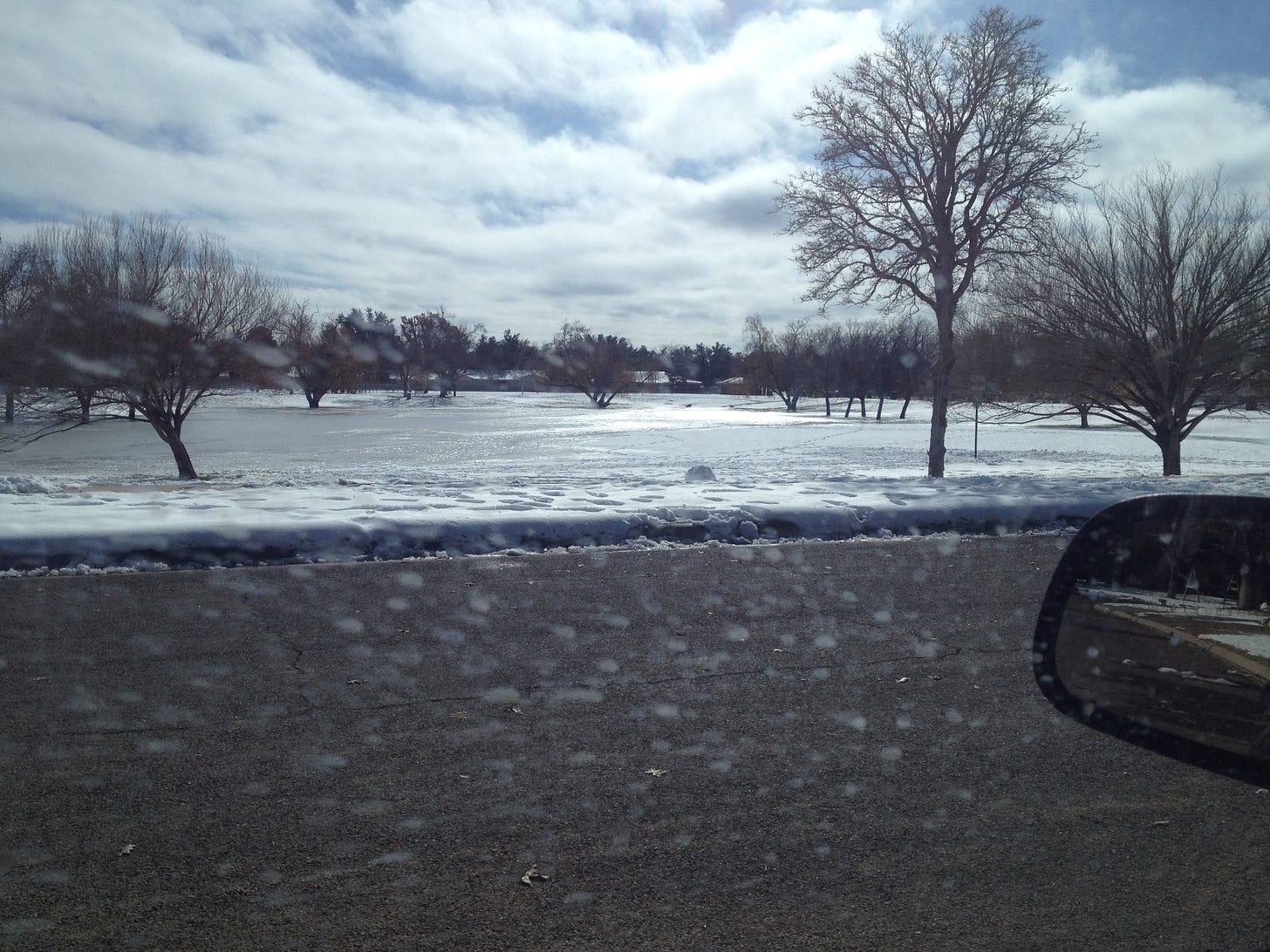
We very briefly interrupt this article-essay for a quick reminder:
If you already have multiple paid subscriptions and cannot currently add another subscription to your budget, yet you would still like to contribute a small amount of your hard-earned coin/paper dollars/etc. to this newsletter, you can clickety-tappity-samashty the purple button below and it will take you to my Ko-Fi page where you can toss some coins my way!
Thank you for pausing to consider becoming a free or paid subscriber, and/or for taking time to think about contributing to the Ko-Fi page (and then possibly contributing to it?). Part of the reason it takes me a while to get these posts out is because I put alot of time and research into them because apparently attempting to half-ass write posts is just not my thing. But still, I still appreciate you stopping by and reading this post, so thank you💜💞
And now, back to the somewhat regularly scheduled article-essay!
Midwinter Day
To balance out the amount of well known holidays celebrated in the Northern Hemisphere and worldwide, I asked the Almighty Google about winter holidays celebrated in the good ‘ole Southern hemisphere. For once, as opposed to some of the times the search engine has made searching for specific things difficult, I’m pleased to say that the Almighty Google did not disappoint! (And made me actually be more specific in my inquiries!)
I was surprised to find a celebration called Midwinter Day (or simply called Midwinter) celebrated in none other than Antarctica! Now, before writing this article-essay, I had never heard of Midwinter Day, so Fellow Musers, believe me when I say that this was truly a delight to read about and research!
(Aaaaand this research maaaaay have inspired a future post about Antartica itself😱🙀Stay tuned!)
Midwinter Day is celebrated mainly in Antarctica at various stations around the continent, but it is also celebrated by researchers even after they leave their research stations and return to much warmer climates. Celebrated on June 20/21, Midwinter Day is the Antarctica equivalent to the Winter Solstice. In the rest of the Southern Hemisphere, that day is also simply called the winter solstice (at least from what I could see). Midwinter Day started out as a celebration for Christmas, but it eventually evolved into it’s own, separate celebration!
So how does one celebrate Midwinter Day, specifically in Antarctica? According to good ‘ol Wikipedia, stations around the continent celebrate it by incorporating customs from their specific countries. Food shipped in at the beginning of the research season that is for this specific day is unfrozen, cooked up, and served to the station’s inhabitants. Since there are research stations from pretty much every continent north of Antarctica, the food can vary. Some stations even exchange gifts with each other!
Honestly, reading about this celebration has kept the dying embers of hope for humanity alive in my soul. In many ways, and in my very humble opinion, Antarctica is probably the best example that we have of a glimpse of how globalization can work. I will write about this idea another time, but I’d like to know:
End of Section Question 3:
Have you ever gone on a tour of Antarctica? Do you know or have you met someone who has been a researcher at one of the stations? Do you want to go see the South Pole?
Up next, the holiday that is most famous, and is poking at me to be a possible future deep dive, Christmas!
Christmas
Ow! Okay, okay! Ow! Christmas you win, you can stawp poking at me! I ain’t Catholic, but Holy Mary Mother of God, this holiday is just as persistant as the religion it’s associated with!
Listen Christmas, I will wack you with this fiery Yule Log if you don’t stop! You’ve been warned! *Whispers: You’re being very uncivilized, you uncivilized heathen!*
*Holiday and Human have a stare down*
The holiday celebration of Christmas will eventually get it’s own post, buuuut it wouldn’t be a winter holiday post without mentioning it, amiright?
*Holiday thinks about the above statement, and feeling satisfied, takes a seat on it’s own unlit Yule Log and goes into hibernation*
*Human clears throat*
There are many reasons people celebrate Christmas. For some, it’s about presents and spreading good cheer during-what can be-a depressing month for many beings. For others, it’s about celebrating the birth of Jesus Christ-although there is very strong evidence that he would have been born in the spring season, not the winter. For other groups, Christmas represents an amalgamation of various pagan traditions stuffed into one holiday that was “christianized” when Christianity became one of the prominent religions throughout Earth.
I will make this section short because I don’t want to write a similar future Christmas holiday post, buuuut, briefly, you may be wondering what traditions am I thinking of/talking about as far as combining pagan traditions go?
Traditions that people of pagan beliefs celebrate that have some similarities to Christmas:
The Winter Solstice: You may have been asking yourself: How is the winter solstice connected to Christmas? Well, Sol was an ancient Roman sun god whose “birthday” was celebrated on Dec. 25. The winter solstice was a celebration of this sun god returning to earth to bring the warmness of spring and summer back! When Christianity became the main religion of the Roman Empire, ol’ Sol’s birthday was given to sweet Baby Jesus. Bless his soul!
Saturnalia: In addition to being a planet in our solar system, Saturn was an ancient Roman agricultural god. The ancient festival of Saturnalia that took place for a week was a celebration of Saturn. There was lots of gift-giving, revelry, and lots of other stuff.
Side note: My naming of Nalia had nothing to do with Saturnalia, in case anyone was curious.
Yuletide and the Yule log: Yuletide was an ancient Norse winter tradition involving decorating evergreens that would eventually become Christmas trees. As for the Yule log, in many places, people would burn a special wooden log that burned for 12 days between the winter solstice and the new year!
Mistletoe: In recent history, the mistletoe is a little sprig that is hung in random places on the ceiling and/or in doorways, and when two people find themselves under said sprig they kiss (or apparently they’re suppose to). However, the original role the mistletoe played was in fertility rituals and in some cases, a possible cure for poison.
Exchanging of Gifts: This tradition appears in almost any kind of celebration, regardless of the season. But it’s very prevalent in many ancient winter traditions, and was absorbed in Christmas as well!
Fun Note: In Orthodox Christianity, Christmas is celebrated on January 7, due to following the Julian calendar! Back when I was doing Uber Driving, between Christmas and New Years, I was driving a passenger to a destination. She mentioned that due to working over the holidays, she and her boyfriend hadn’t been able to celebrate Christmas, and were going to celebrate it a little late, but she still hadn’t gotten him anything. I let her know that in some areas of the world, Christmas was extended to around Jan. 6, so if she still wanted to get her boyfriend a Christmas gift, she still had plenty of time. We had a good laugh over that!
I could list a few more things, but I also would like to move on to the next few celebrations. But don’t worry-in a future post, we’ll also explore the origins of Santa Claus and his brother Krampus, as well as some more origin myths and stories about Christmas and how it came to be the holiday that is celebrated by many of the Christian faith as a joyful day of birth for Jesus Christ, while also being simultaneously annoying from a retail perspective, and enjoyed by many people in the secular community!
End of Section Question 4:
If you celebrate Christmas, what are some of your favorite Christmas memories? Do you enjoy celebrating Christmas? Do you not? Let me know in the comments!
Boxing Day
I would be remiss if I didn’t include Boxing Day in this article-essay. For any Fellow Musers who live in countries like Canada, Europe, Australia, and New Zealand, I know Boxing Day is basically second Christmas for y’all! For those of us ignorants in the United States who don’t know what this special day is, to us U.S.ans, it’s the equivalent of Black Friday, Christmas version! In some countries, it’s more of a bank holiday, equivalent to Labor Day. For more about this non-U.S.A. holiday, check out the Wikipedia page!
End of Section Question 5:
To any Fellow Musers who live in countries that celebrate Boxing Day, does your country/province observe it as a bank or retail holiday? Do you participate in it, or know someone who looks forward to this day every year? If you have an answer to these questions, please
Before we transition towards the very end of December and go into January, I would like us to take a brief look at a few important holidays that are on their own calendar cycle, and coincide with other holidays!
Celebrations/Holidays That Can Happen In The Winter Season, But Are Not Exclusive to Winter
As I mentioned above, there are some holidays and celebrations that do not fall in line with the Gregorian calendar events due to following the lunar calendar cycle7. Two that we’ll be briefly looking at for this article-essay are Ramadan and Hanukkah!
Ramadan
Ramadan8 is a celebration that happens during the 9th month of the Muslim calendar. Gregorian calendar-wise, Ramadan can basically fall during anytime of the year, but I’ve noticed that it commonly falls in either the Spring season or the Winter season, and always starts and ends with the presence of the crescent moon. For Muslims, Ramadan is a month of fasting from sunrise to sunset9, reflection, prayer, and community. It is also a celebration of the Muslim Prophet Muhammad’s first revelation(peace be upon him10) of the Quran, the Holy Book of Islam.
Ramadan is considered one of the Five Pillars of Islam. The word translates to “scorching heat”, which is fitting, as when one fasts or forgoes food for long periods of time, it can indeed feel as if your insides are burning.
In some Muslim families, observing Ramadan can be an individual choice. During my Food and Culture class in 2023, there was a graduate student TA’ing for the class who was Muslim and from Turkey. Since Ramadan happened during the spring that semester, she gave a presentation about some of her family’s traditions, one of which was to allow the children the freedom to either observe Ramadan or not to observe it. She said that 2023 was her first year to observe Ramadan, and when the class had its once-a-month-cooking session the next week, she brought a Ramadan-based dish to the session. I don’t remember what the dish was, but I do remember trying it and liking it very much!
Hanukkah
In Judaism, the holiday-celebration of Hanukkah11 can occur anytime between the Gregorian dates of November 28 to December 27. On the Hebrew calendar, the starting date is the 25th day of Kislev. Hanukkah commemorates the Jewish people’s rebellion (and unfortunate civil war between two Jewish factions) against the Seleucid Empire in the 2nd Century BCE, and retaking of Jerusalem, along with the re-dedication of the Second Temple in Jerusalem. It is observed for eight days and eight night.
Hanukkah can be translated as Judaism’s Festival of Lights (or Festival of Lamps). I specify Judaism because there are Festival of Lights celebrated in other countries that have their own celebrations that are also called Festival of Lights. Rituals that take place during Hanukkah are the lighting of the eight candles of the Menorah and the singing of songs, playing dreidal, and eating oil-based and dairy foods. Diring this celebration, it is traditionally forbidden to be sad during this time.
End of Section Question 6:
Do you celebrate Ramadan or Hanukkah? Do you know someone who does? Lemme know!
Gregorian Calendar: New Years Eve/New Years Day
Every year, on December 31st and on January 1st, most of the modern and post-modern world celebrates New Years Eve and New Years Day. There are several countries who have their own New Years celebrations, usually during the Spring season that coincide with the phases of the moon, but for this post, we will be talking about the Gregorian New Years Eve/Day!
New Years Day as we know it was not always celebrated on January 1st. It was once celebrated in all cultures and civilizations in March, when the Earth was starting to (finally!) get warm again.
While researching holidays for this essay and the upcoming winter holiday essays, I was somewhat surprised to learn that there use to not be 12 months in the year. The most common number was 10 months, starting in March and ending in December. It’s helping me rethink about how archaeologists put dates pre-Gregorian calendar-wise! Like all things that we follow nowadays that has truly ancient origins, the history of calendars are a bit Timey Wimey, but I’ll try to make things easy-ish.
January and February didn’t exist until the Romans (read: Julius Caesar) decided to add two more months to their calendar! January was named after the Roman god Janus, who had two faces and represented many things but for this article-essay, he represented beginnings-transitions-endings-rinse-and-repeat. February was named after the Roman god Februus. I’ll write a bit more on February when we get to February and March winter post😉
No matter what day New Years falls on-either for personal or solar/lunar calender reasons-the common factor is that it is the dying of the things that no longer serve someone and the start of new beginnings. Many people attribute this idea to needing to completely remake themselves-and as we have seen in these modern times, the results of “remaking thyself” can have interesting results! Personally, when I think of transformation, I’m not thinking about physical transformation12. I’m more specifically talking of an inner transformation, looking into oneself. Even if someone likes what they see, it doesn’t hurt to take a once over, see if something can be improved, and work on it throughout the year.
End of Section Question 7:
How do you celebrate the January New Years Eve and New Years Day?
<Was going to put a photo here but couldn’t find one in my phone and was too lazy to search The Google>
Holidays in January
I was originally going to do a January-February winter holiday post, but this article essay is demanding that I combine December and January. So I will oblige. Let’s take a brief look at some January holidays and celebrations:
Inauguration Day (United States)
While it is important to acknowledge that not everyone would say that Inauguration Day is always a day of celebration in any country, in the United States, depending on who wins the United States presidency every four years, it is for the most part a day of celebrating the peaceful transition of power from one presidential administration to another. Inauguration Day is always held on January 20th, or January 21st if the 20th falls on a Sunday Funday. This year, this special-held-once-every-four-years day happened to coincide with the holiday of MLK Day for the current President Donald Trump, entering into his second di term13. This has happened two other times: during the second inaugurations of President Bill Clinton in 1997, as well as President Barack Obama in 2013. By now, people on the Stack of Subs have probably read enough about the history of the U.S. Presidential Inauguration Day from other writers, so I will not go further into that history for this article-essay.
Buuut, speaking of a holiday celebration that has happened every year since the late 1900’s…
MLK, Jr. Day:
Every person, regardless of ethnicity, who was born in America in 1960 and beyond knows who Martin Luther King, Jr. is. Every person who, regardless of ethnicity, who is still alive and was born before 1960 definitely knows who Martin Luther King, Jr. is. I’m not going to go through his biography/whole Wikipedia page, but if you’d like to read it, you can clickety-tappity this here link!
A pastor and a Civil Rights leader in the 1960’s, he led a marches and helped organize bussing people, many of whom were folks of African-American ethnicity, to the marches despite threats of (and actual) arrest(s). While he is known for being a champion to African-Americans rights, his Civil Rights marches were pretty diverse, as people of every ethnic background and gender identity all came together to join in the mission of being a truly united country.
For more about MLK Day, this article covers it pretty well! I know that many of us today share that Dream of unity and equality, no matter our personal and public backgrounds, and strive to make it into a reality!
January and December Holidays and Celebrations around the World
Aight, we’re almost done! Buuuuuuut I just know that you’re curious about celebrations that take place in January around the world! Don’t click on that search engine just yet-I got y’all covered!
January:
Feast of Circumcision (Jan. 1-Christian)
Armenian Apostolic Christmas (Jan. 6)
Saint Basil’s Day (Jan. 1-Christian)
Old New Year (Jan. 14-Julian Calendar)
Burns Supper (Jan. 25-celebration of the Scottish poet Robert Burns)
Lohri (Jan. 13 if you’re Sikh, and Jan. 14 if you are Punjab)
Confederate Memorial Day (Jan. 19-Secular14)
December:
Bodhi Day (Dec. 8-Buddhism)
Advent (Christian)
Krampusnacht (Dec. 5-Europe)
Feast of the Immaculate Conception (Dec. 8-Catholic)
Pancha Ganapti (Dec. 21-25-Hindu)
HumanLight (Dec. 23-Humanism)
Salgirah Khushiali (Dec. 13-Shia Ismaili Muslims)
Yalda (Dec. 21-Persian Winter Solstice)
Festivus (Dec. 23-taken from the T.V. series Seinfield)
Chalica (First week of Dec.-Unitarian Universalism)
Here is the Wikipedia page for an even larger list of holidays celebrated around the world. And if you want to know even more, you may now click on that search engine!
Conclusion
Winter, being cold, literal darker days can take a toll on everyone, no matter where in the world one is. Culturally, spiritually, emotionally, coming together in community and having things to celebrate during dark days is probably what has kept humanity and our ancestors from completely losing our minds. Although I am not a fan of cold, winter months, I do appreciate the beauty of seeing nature turn bleak because eventually nature will blossom again, annoying our allergies, but also helping us to appreciate the warmth of Spring, Summer, and the relief that Fall will bring.
Also, who doesn’t like to occasionally attempt to make things out of snow? Attempt to ski or sled? Bundle up in blankets with the kitties (or your choice of furbaby), while drinking a hot drink?
Or maybe you’re someone who likes to be outside when it’s cold? How about this-you get your lawn chair and sit outside and I’ll join you from the inside, and through the window we can communicate via writing on paper, typing on our phones and putting the phone text up to the window so the other person can respond with a window text of their own? Or maybe you’re someone who likes to enjoy the cold in silence (depending on where you are geographically) and just be one with nature? Either way, both are fine, but I’m still going to be inside, bundled up in blankets, watching my floofs do floofy kitty things😉
Before you go on to read another post, I would like to let you know about some upcoming posts
February:
Artist’s Corner Post
Sometime toward the end of February or in early March:
Musings Holiday Special #2: Winter Holidays, Part 2
Monthly Shout Out posts to welcome new Fellow Musers! The January Shout Out will commence on the 31st!
I’m still planning on doing two Deep Dives, a repost in April (oh and the floofs are insisting requesting a birthday post-I mean, how can I not?), and having one more Artist’s Corner post out by May.
…However…
I’m having to slow things down a bit to focus on getting through my course, but writing for y’all is never far from my mind! Often, as I’m studying, my brain thinks of things that I could be writing about instead of doing the thing I’m suppose to be doing. As I explained earlier in this post, I was hoping to do a winter post for each corresponding month, but with the way that I found myself writing these specials, that tends to be impossible right now.
You may be wondering why I’m calling them “specials” instead of normal Musings or even Deep Dives? Welp, apparently I have fun setting up foundations for future article-essays. So, while this won’t be officially included in the Intro section (unless you, Fellow Muser, believe I should include these season specials in the Intro section?), I view these early article-essays as building the next level of foundation for what I hope this space to be-community, looking more in depth at the things, etc.. I definitely won’t have it figured out by Year 2, but maybe by the middle of Year 3, which I hope to see all of you plus a few more beings here for and beyond!
Okay, now I’m babbling! I promise to not do this at the end of every article-essay, and/or post, haha! Thank you for sticking around and reading all of this! I hope you enjoy the rest of January, that you’re keeping up with your (non) New Years Resolutions (I surprisingly have been able to keep up with my non resolution to lightly dust every week!), and that your February goes well!
To anyone who will be celebrating or participating in the Lunar New Year on Jan. 29, I wish you a Happy New Year that brings you peace, clarity, joy, and growth!
Carpe Diem and Huzzah!
~Kimber, Nalia, and Salem
I feel that American football should be called “Tackle Handball” or simply just “Handball”
Line from Beyoncé’s song, “Texas Hold ‘Em” on the album Cowboy Carter (2024)
Fun Fact: Vitamin D3 is what we get directly from the sunlight when the UV rays come into contact with our human skin. Vitamin D is what Vitamin D3 converts into once it’s absorbed into our bodies! Surprisingly, they are not the same thing-thanks Google for that bit of info!
However, it should be noted that there has been evidence that depression (and anxiety) are actually part of our survival evolution as a species. I’ll go into that more in a few future posts and a possible deep dive.
PSA: With every profession there is always a danger of being harmed by someone else, but in my non-experience that is usually the exception and not the rule. I personally have only felt in danger doing Uber Driving a rare few times, but I have not felt in danger doing Uber Eats-even when I do deliveries at night and the lighting is not good.
Translation: Seven Principles
Lunar Cycle=Moon cycle
There are exceptions to this fasting rule depending on how much or how little sunlight there is in polar regions
I am not Muslim, but I put the phrase as a show of respect to anyone from the Muslim faith who may come across this article-essay. As a non-Muslim, it’s not a phrase that I would normally say even if I was talking to a Muslim, but since I am writing about a holiday that many celebrate and/or observe, I felt it appropriate to include the phrase “peace be upon him” in regards to the Muslim Prophet Muhammad
To be clear, I’m not specifically talking about changing one’s gender-although if that’s part of someone’s “new me”, and they are of age 18 and up, regardless of if it’s an inner acknowledgement of their true self or they plan on having transition surgery, by all means do it!
An article-essay about the first and second presidency of Trump is brewing in my mind. I promise to be fair towards him even though I did not vote for him the three times he ran for the office.
This is apparently a holiday that is observed in some Southern U.S. states, including my home state of Texas (although in an unofficial capacity).
Disclaimer for someone reading my writing for the first time:
I would like to be clear: I am not a white supremacist. I don’t enjoy the notion or the implication of the saying “The South will rise again!”. I simply added this holiday to the list because 1.) I legit did not know about it and 2.) I didn’t want someone to make a comment about it and I be like, “Say whaaat?!?” (I don’t claim to know everything) I also believe in the concept of Balance, and if I’m going to mention things that I like or am curious in, I believe that I should include ideas that I don’t agree with. When I write about and/or mention something controversial (because part of being an anthropologist/anthro major includes talking about controversial topics, so I definitely will!), I will always do my best to differentiate in either the post itself or a footnote if I don’t agree with whatever the controversial thing is.




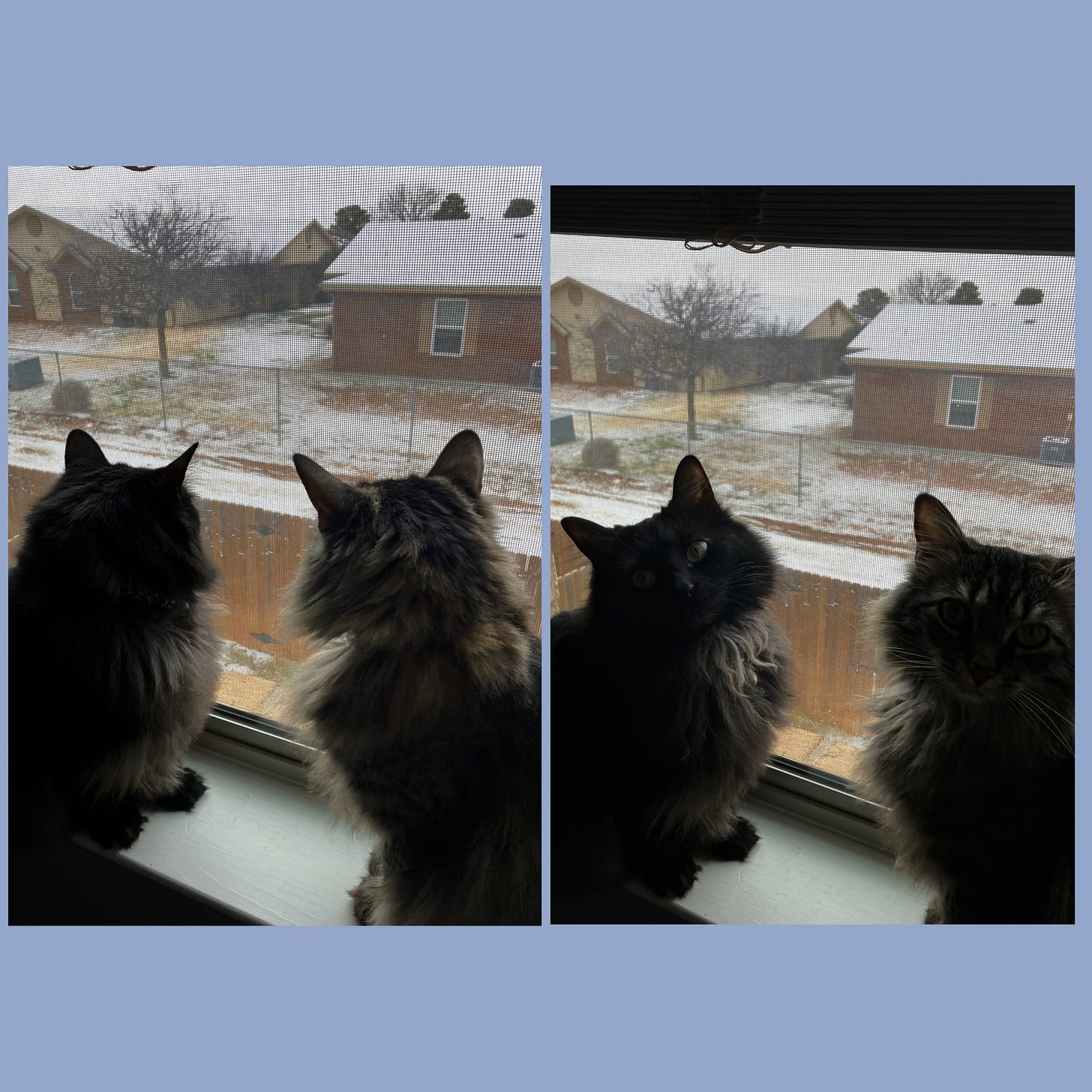

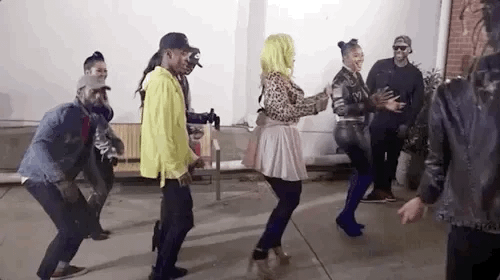
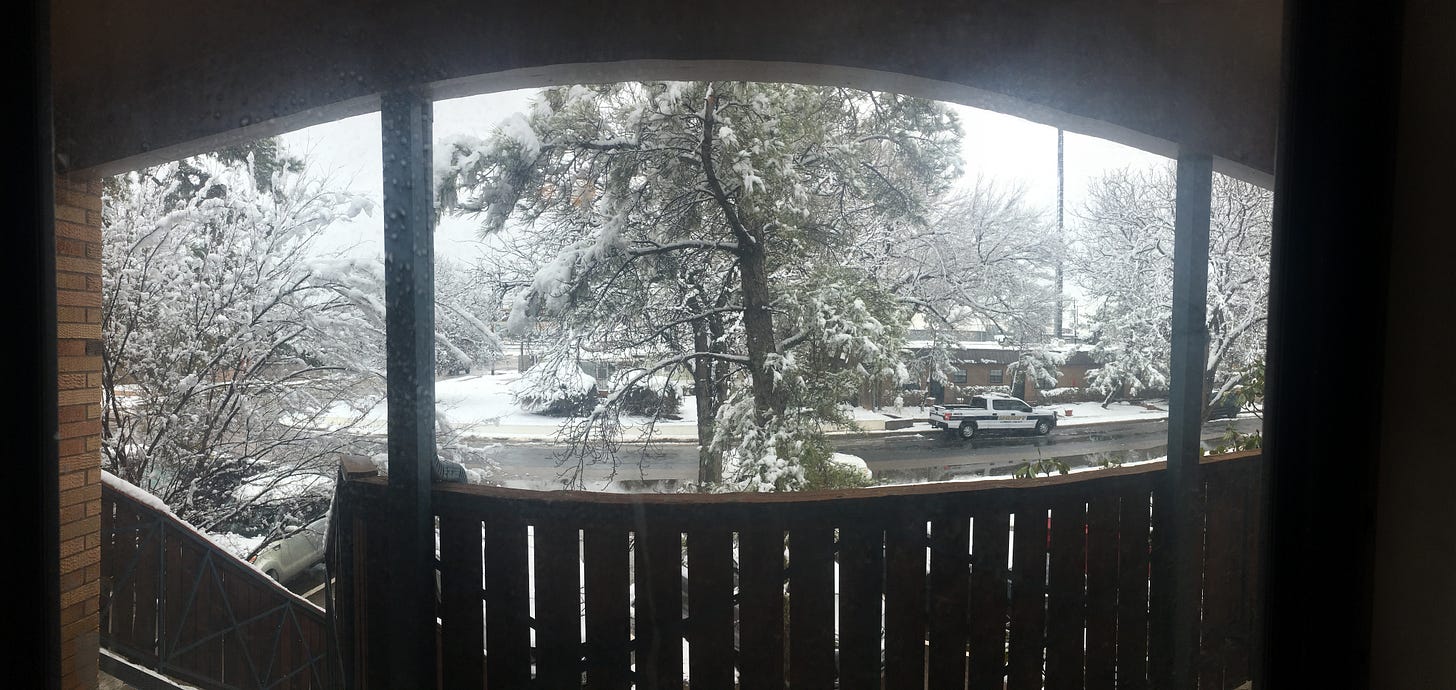


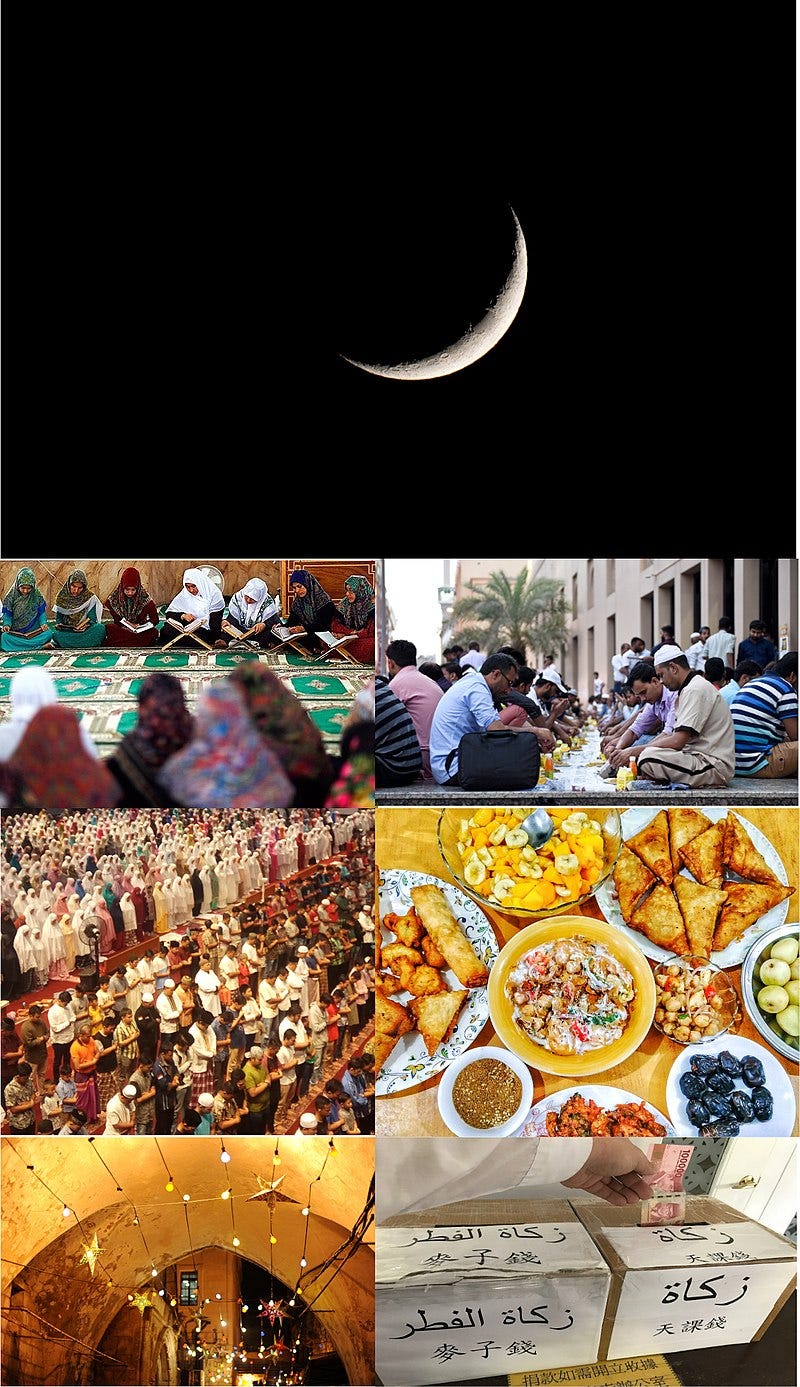
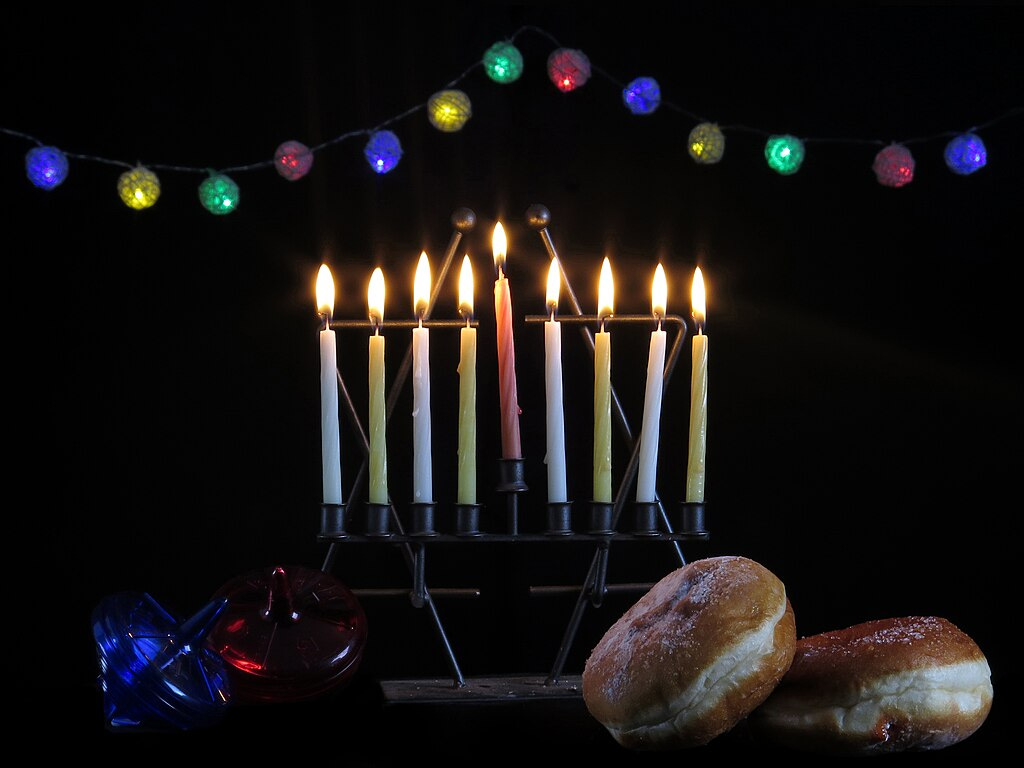


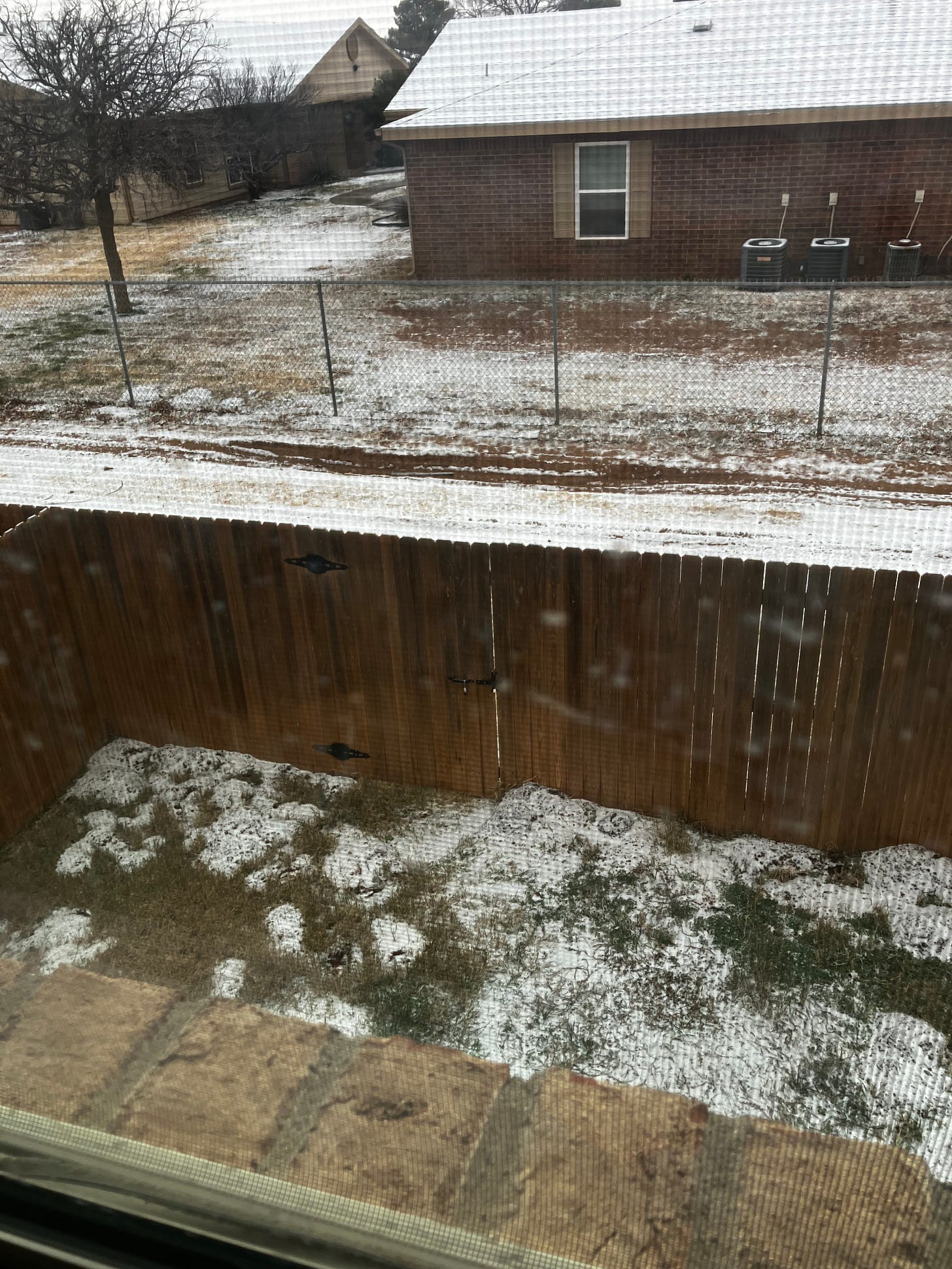
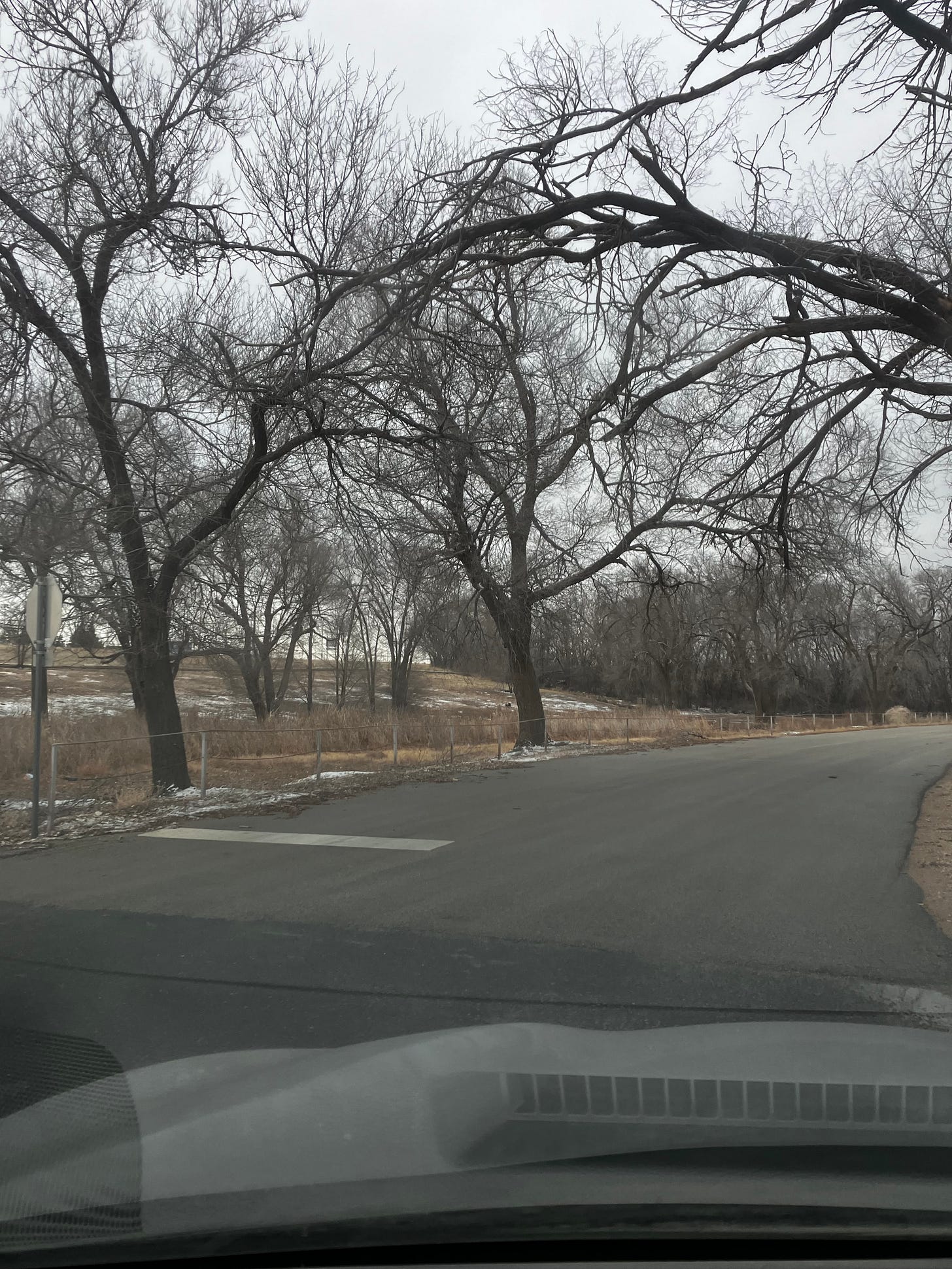

Happy-merry-Hanukkah-solstice cheer, Kimber ;)